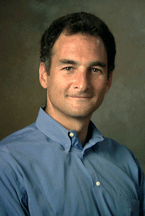
Two Wayne State University alumni were named to the Institute of Medicine of the National Academy of Sciences. Michael Fleming, M.D., '74, and Gerald Shulman, M.D., Ph.D., '79, have been elected to an elite group of fewer than 1,500 scholars and scientists who are recognized as among the most distinguished in the country. Drs. Fleming and Shulman are two of 64 new members this year.
Dr. Fleming is professor and director of research in family medicine at the University of Wisconsin Medical School. His research and advocacy relate to substance abuse screening and treatment in the primary care office. He has built a substantial federally funded clinical research program in primary care and has distinguished himself in the field of alcohol and addiction. He has consulted on research projects with WSU's own Dr. Robert Sokol, distinguished professor of obstetrics and gynecology and director of the C.S. Mott Center for Human Growth and Development , who said of Dr. Fleming, "He's first rate and has made seminal contributions in the field of brief intervention for behavioral modification. His work is creative and has now been replicated by others. He more than deserves this honor."
Dr. Fleming recalls his training days at Detroit General Hospital that were "filled with wonder and awe." He said, "I mostly remember the chaos on a busy night with so many sick patients and so much going on at the same time, but also the sense that patients were getting good care and the residents and staff were inspiring. It was really an amazing place to be medical student. Wayne State taught me to be curious, to ask questions, to base my patient decisions on the evidence, to be skeptical of new treatments until the science was strong. This curiosity and the need to know is what led me to my career as a physician scientist and led me to the Insititute of Medicine."
Dr. Gerald Shulman, who earned both his medical and doctoral degrees at WSU, is now a Howard Hughes Medical Institute Investigator and also a professor of medicine and cellular and molecular physiology at Yale. He has distinguished himself in the field of diabetes and obesity and in particular has utilized nuclear magnetic resonance spectroscopy (NMR) to demonstrate molecular predictors of insulin resistance and to examine molecular effects of a variety of therapeutic approaches to diabetes.
For example, his research indicates that a decreased ability to burn sugars and fats efficiently is an early and central part of the diabetes problem, and that elderly people may develop insulin resistance because "power plants" in their muscle cells decline or fail with age. Because diabetes and obesity are major problems in our country, Dr. Shulman's line of work has huge implications for public health.
Membership in the Institute of Medicine is both an honor and an obligation to work on a broad range of studies related to health policy issues. Members contribute their knowledge and professional judgment to the formulation of public policy recommendations.
Drs. Fleming and Shulman now join WSU faculty members Blaine White, M.D., and Charles Schuster, Ph.D., who are also members of the Institute of Medicine .
Established in 1970 as a unit of the National Academy of Sciences, the Institute of Medicine is concerned with the protection and advancement of the health professions and sciences, the promotion of research and development pertinent to health, and the improvement of health care. The National Academies are comprised of: the National Academy of Sciences, National Academy of Engineering, Institute of Medicine , and National Research Council.